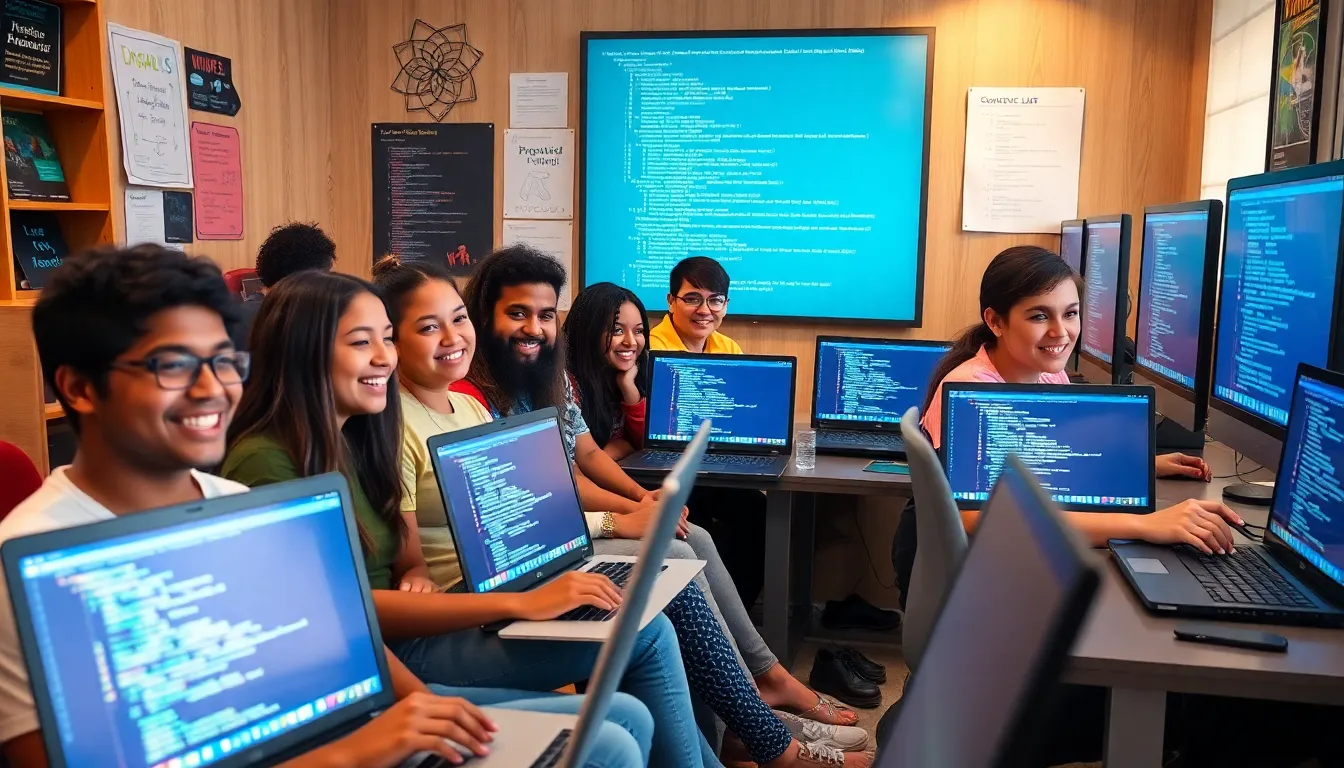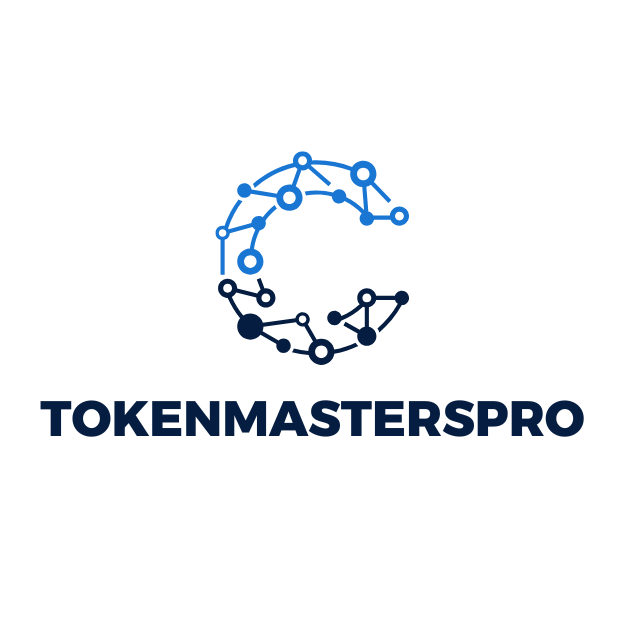In today’s digital age, learning programming isn’t just a valuable skill—it’s a gateway to endless opportunities. From crafting mobile apps to developing complex algorithms, programming shapes the world around us. As technology continues to evolve, so does the demand for skilled programmers who can turn innovative ideas into reality.
Whether someone is a complete beginner or looking to enhance their skills, the journey into programming can be both exciting and rewarding. With countless resources available, aspiring coders can easily find the right path that suits their learning style and goals. Embracing programming opens doors to careers in tech, boosts problem-solving abilities, and fosters creativity in countless fields.
Table of Contents
ToggleUnderstanding Programming
Programming refers to the process of creating instructions that a computer can execute. It encompasses various languages and methodologies, each serving distinct needs within software development.
What Is Programming?
Programming involves writing code using specific programming languages, such as Python, Java, or C++. These languages provide the syntax and structure required to communicate with computers effectively. Programmers write algorithms to solve problems and automate tasks. They build software applications, websites, and systems by implementing coding logic, testing, and debugging their work to ensure functionality and efficiency.
Importance of Learning Programming
Learning programming offers numerous advantages in today’s technology-driven world. First, it enhances problem-solving abilities, as individuals learn to break down complex challenges into manageable components. Second, programming skills open career opportunities, with demand for tech professionals projected to grow significantly. According to the U.S. Bureau of Labor Statistics, employment for software developers is expected to increase by 22% from 2020 to 2030, much faster than the average for other occupations. Third, programming fosters creativity, enabling individuals to develop innovative solutions across various fields, from web design to data analysis. Lastly, knowledge of programming encourages collaborative work, as many projects require teamwork and communication among developers.
Choosing the Right Programming Language

Selecting a programming language is a crucial step in the learning journey. Different languages serve unique purposes and cater to various interests and career paths.
Popular Programming Languages for Beginners
- Python: Python stands out for its readability and simplicity, making it ideal for beginners. Its versatility facilitates tasks in web development, data analysis, artificial intelligence, and more.
- JavaScript: JavaScript is essential for web development, enabling dynamic content and interactivity on websites. It’s also widely used for backend development with frameworks like Node.js.
- Java: Java’s platform independence and strong community support appeal to beginners. It’s commonly used in enterprise environments and Android app development.
- Ruby: Ruby emphasizes simplicity and productivity. The Ruby on Rails framework simplifies web development, allowing beginners to build applications quickly.
- Scratch: Scratch teaches programming concepts through visual blocks. It’s excellent for younger learners and those completely new to coding.
Factors to Consider When Selecting a Language
- Project Goals: Determine the type of project, whether it’s web applications, data analysis, or mobile development. Each area may favor specific languages.
- Learning Curve: Assess the language’s complexity. Beginners typically benefit from languages with simpler syntax and extensive resources.
- Community Support: Consider the availability of tutorials, forums, and libraries. A strong community can provide essential support during the learning process.
- Career Opportunities: Evaluate the demand for skills in specific languages within the job market. Languages like Python and JavaScript often lead to abundant job opportunities.
- Personal Interest: Factor in personal interest and goals. Engaging with a language that aligns with individual passions can enhance motivation and retention.
Effective Learning Strategies
Effective learning strategies enhance the programming education experience and ensure consistency in skill development. Incorporating various resources can optimize the learning process.
Online Courses and Tutorials
Online courses and tutorials offer structured learning paths that cater to different skill levels. Platforms like Coursera, Udemy, and Codecademy provide interactive exercises, video lectures, and quizzes. Many courses focus on practical skills, ensuring students apply lessons in real-world scenarios. Students benefit from forums and community support, which foster collaboration and problem-solving.
Books and Other Resources
Books remain a valuable resource for in-depth knowledge and reference material. Titles like “Automate the Boring Stuff with Python” and “Eloquent JavaScript” provide comprehensive insights into programming languages. Additionally, online documentation, blogs, and forums deliver updated information and diverse perspectives. Engaging with multiple resources enhances understanding and exposes learners to varying methodologies.
Practice Through Projects
Hands-on practice solidifies programming concepts and strengthens skills. Completing projects, whether personal or contributing to open-source, provides real-world applications for learned techniques. Building a portfolio showcases completed work, demonstrating capabilities to potential employers. Frequent practice promotes confidence and mastery, while collaborative projects enhance teamwork and communication skills.
Overcoming Challenges in Learning
Learning programming presents several challenges that learners must navigate. Identifying and addressing these obstacles fosters resilience and enhances the overall educational experience.
Common Obstacles for Beginners
- Feeling Overwhelmed: Many beginners encounter a vast array of concepts, tools, and languages. It’s common to feel lost, but breaking topics into smaller, manageable parts alleviates this stress.
- Debugging Difficulties: Debugging can frustrate new programmers. Understanding that errors are a normal part of coding and using systematic debugging techniques simplifies this process.
- Limited Practical Experience: Beginners often struggle with applying theoretical knowledge in practical scenarios. Engaging in small projects can build confidence and reinforce learning.
- Imposter Syndrome: Many learners doubt their abilities compared to experienced programmers. Regular practice, seeking collaborative environments, and celebrating small achievements challenge these feelings.
- Resource Overload: With countless resources available, selecting the right ones can be daunting. Beginners benefit from focusing on a few reputable resources that align with their learning objectives.
Tips for Staying Motivated
- Set Clear Goals: Establish short- and long-term goals to provide direction. Specific milestones, like completing a project or mastering a new concept, foster a sense of accomplishment.
- Celebrate Progress: Acknowledge achievements, no matter how small. Recognizing progress boosts confidence and encourages continued effort.
- Join a Community: Engaging with programming communities offers support and camaraderie. Collaborating with peers can enhance the learning experience and provide motivation.
- Create a Routine: Consistent practice leads to mastery. Designating regular time for programming ensures that skills develop steadily.
- Mix It Up: Exploring various projects or challenges prevents boredom. Seeking new problems or contributing to open-source projects sustains interest and expands knowledge.
By recognizing common challenges and employing effective strategies, beginners can navigate the journey of learning programming with greater ease and success.
Embracing programming opens doors to a world of opportunities. As technology continues to evolve, the demand for skilled programmers remains strong. With the right resources and strategies, anyone can embark on this rewarding journey.
By selecting a programming language that aligns with personal interests and career goals, learners can tailor their experience to maximize engagement and success. Overcoming challenges is part of the process, and with persistence, individuals can develop valuable skills that enhance their problem-solving abilities and creativity.
Ultimately, the journey into programming is not just about coding; it’s about growth and discovery in an ever-changing digital landscape.



